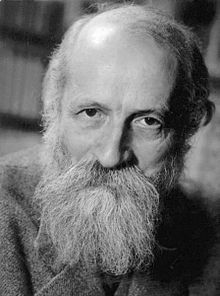Mentor teacher/Oral reflection tools in mentoring
Good conversational skills are important in any kind of mentoring. According to Kristiansen (2008: 36-37), mentoring requires the mentor to use appropriate verbal techniques to be able to ask the mentee appropriate questions and to answer them in a proper way. Such oral reflection tools have a positive impact on the mentee's development. In this book we describe four different reflection tools that a mentor should be familiar with.

The most important conversational skill is the ability to listen. In mentoring this skill is usually termed as “active listening”. Metacommunication is another important conversational skill (Baltzersen 2008). By talking regularly about the conversation the communication can be more transparent and efficient. Other relevant skills might be how one can give advice or confront the mentee in an appropriate way. Many mentors are unsure about this because mentees usually experience that they are in a vulnerable position. This book seeks to identify some of the most important skills.

Nevertheless, we must be aware that too much focus on conversational skills or techniques can impede authenticity in a mentoring conversation. The mentor needs to pay constant attention to ensure that conversational techniques do not interfer with an open and spontaneous conversation with the mentee. In his book “I and Thou” (1967), Martin Buber writes that a person can not be understood as an isolated “I”, but will always be related to the world in some way. Human beings will either be in an I-It relation or an I-You (Thou) relation. In an I-It relation we relate to the world and other human beings with distance or control. We describe, analyze, define, create diagnoses and compare. A person is described as an “exemplar”, a “thing”, an “object”, a “potential” or a “resource”. In this relationship we see the mentee in light of what we already know about the person. In an I-You relation, on the other hand, we will always be confronted with the fact that the other person is different than expected or what we thought we knew about her (Kristiansen 2009).
The skilled mentor knows how to use the mentoring tools, what kind of effect they will have, and when to use them. Some mentors, but far from all, inform the mentee at the start of their relationship that specific conversational techniques will be applied. The danger in not giving this information, is that the mentee might become angry if the person discovers that the mentors uses hidden conversational techniques. Kristiansen (2008) argues that techniques may interfere with the reciprocity in the mentor-mentee relation. They may give the mentor too much control over the situation. Based on these considerations, we suggest the term "oral reflection tools" instead of conversational techniques as a broad pedagogical context which includes articles about “active listening” and “to the ability to talk about the conversation” (metacommunicate).
Sources
edit- Baltzersen, Rolf K (2008) Å samtale om samtalen. Bergen: Fagbokforlaget.
- Kristiansen, Aslaug (2008). Hva skiller en veiledningssamtale fra andre samtaler? : Veiledningssamtalens egenart og etiske utfordringer. I Eide, Solveig Botnen, Grelland, Hans Herlof, Kristiansen, Aslaug, Sævareid, Hans Inge og Aasland, Dag G. (red.) Til den andres beste : En bok om veiledningens etikk s. 24-40. Oslo, Gyldendal akademisk.
- Kristiansen, Aslaug (2008). “Hva hører du når du lytter? Hvem blir du når du svarer?” I Eide, Solveig Botnen, Grelland, Hans Herlof, Kristiansen, Aslaug, Sævareid, Hans Inge og Aasland, Dag G. (red.) Til den andres beste : En bok om veiledningens etikk. Oslo, Gyldendal akademisk.
- Lauvås og Handal (2000). Veiledning og praktisk yrkesteori. Oslo: Cappelen Akademisk forlag.